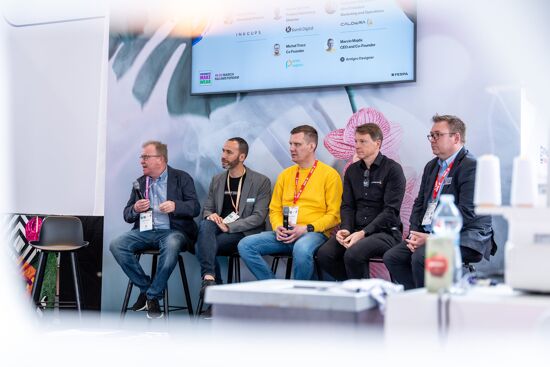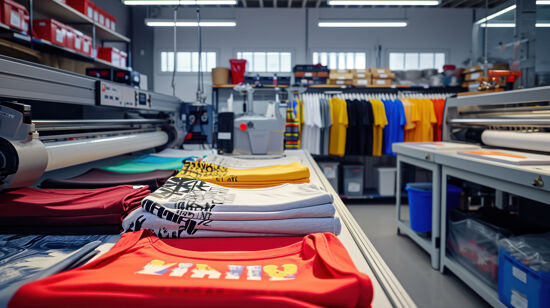Colorjet to launch tech loaded digital printer at FESPA 2017
Digital printer manufacturer Colorjet will be presenting a tech loaded digital textile printer, the TXF at FESPA 2017, taking place from 8-12 May at the Hamburg Messe.
ColorJet has manufactured the digital printer incorporating the latest Japanese technology, which imparts the printer with the power to print brilliantly and flawlessly, with reduced maintenance.
The printer, which will be o display in hall B5, stall G62 at the fair, offers speeds of up to 24sqm per hour on five passes and four colours, and 60sqm per hour on two passes and four colours.
The printer can achieve print resolutions of up to 1,440 dpi and is best suited when it comes to sampling and short runs, particularly suitable for fashion designers and home textiles applications.
The TXF printer which is equipped with Epson printheads gives variable dot control for achieving smooth gradations and is also belt driven, which makes it suitable for printing fabrics including bulky textured materials, thinner fabrics and also stretchable fabric materials such as knits.
The digital printer is apt for printing with pigment inks, and can print practically on any type of fabric including polyester, cotton, silk, viscose, rayon or wool. Pigment printing has an advantage as the fabric does not necessarily require pre- or post-treatment, thereby saving on production times and reducing water pollution.
The TXF is also available to work with reactive inks for printing onto natural fabrics and also disperse inks for printing onto polyester fabrics.
"Colorjet introduced this entry level digital textile printer, primarily for fashion designers and home textiles applications. Since the printer is apt for printing with all inks, whether pigment, reactive or disperse, all types of fabrics, including polyester, cotton, silk, viscose, rayon or wool can be printed which opens huge avenues for different applications," commented Colorjet director Pavan Gupta.
Register for free to visit FESPA 2017
The term ‘garment printing’ covers a whole host of applications, and while this may be good news in terms of the amount of work on offer, it also means that the choice of kit and materials becomes more difficult.
This is where events such as FESPA 2017 can help; by featuring a host of leading manufacturers from the garment print sector, visitors will be able to learn more about the latest kit on offer, and the type of work it is capable of producing.
Taking place from May 8-12 at the Hamburg Messe, in Hamburg, Germany, the exhibition will play host to many major brands from across the global market.
For more information on FESPA 2017, the companies that will exhibit and to sign up to attend as a visitor, please visit: www.fespa2017.com
Delegates can save 70€ entry fee to the exhibition by registering via the website and quoting reference code: FESG702. Discover how a visit to FESPA 2017 can benefit your business and register today.
Topics
Interested in joining our community?
Enquire today about joining your local FESPA Association or FESPA Direct
Recent news

Why are more printers turning to consignment stock management?
Robin East, Group Chief Commercial Officer at UFABRIK discusses how consignment stock management is gaining popularity in the print industry, offering improved cash flow and operational efficiency. It ensures on-site stock availability, enhancing customer service and reducing delivery times. This approach also promotes sustainability through consolidated shipments and fosters stronger supplier-customer relationships.

Personalisation Experience reaches new heights as it confirms inaugural SmartHub feature
FESPA has confirmed the introduction of its new inaugural SmartHub feature, taking place within Personalisation Experience 2025 from 6-9 May 2025 at the Messe Berlin, Germany.

FESPA Brasil 2025 drives market growth
FESPA Digital Printing 2025, took place from 17 – 20 March in São Paulo, and the event attracted a high number of visitors reflected the strength of digital technology in the printing industry.

Driving Product Personalisation in Garment Decoration with Digital Printing Technologies
Digital printing revolutionises garment personalisation, meeting rising consumer demand for unique apparel. Brands like Swag.com and Printful leverage AI and automation for efficient, on-demand customisation. Challenges include scaling and sustainability. FESPA 2025 showcases technologies driving this personalised e-commerce future.